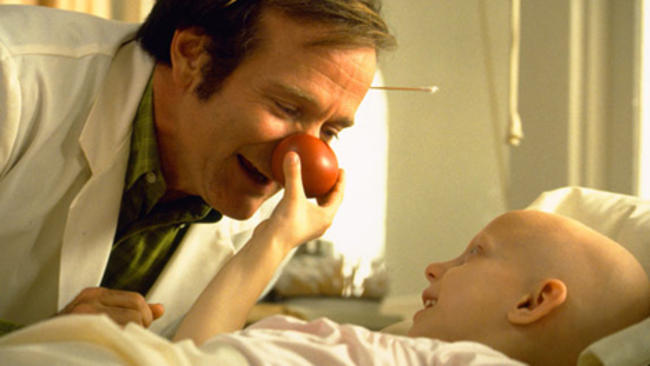
by Madeleine | Apr 25, 2015 | Positive People
 This may seem a strange heading. Positive people coping with depression? Yes, we can still remain positive, focused and participate in life. While depression is an illness that causes feelings of sadness, tiredness and lack of interest in many aspects of our daily, social and working life, it does not define who we are. Depression can be a persistent and powerful seductress that needs to be met head on in a well planned line of attack.
This may seem a strange heading. Positive people coping with depression? Yes, we can still remain positive, focused and participate in life. While depression is an illness that causes feelings of sadness, tiredness and lack of interest in many aspects of our daily, social and working life, it does not define who we are. Depression can be a persistent and powerful seductress that needs to be met head on in a well planned line of attack.
20 tips on combating Depression
1. Know your enemy.
There are many signs for depression and knowing the signs and symptoms
will work in your favour. Here are the signs…
• Tiredness, lethargy, fatigue
• Persistent sadness, easily reduced to/uncontrollable tears
• Sadness and experiencing ‘the blues’ over a two week period and longer
• Feeling useless, worthless, loss of self esteem, self blame
• Sleeping more, sleeping less, disturbed sleep patterns, insomnia
• Weight loss or gain, binge eating or loss of appetite
• Forgetfulness and feeling your mind’s ‘in a fog’
• Headaches, nausea, body pains
• Irritability, Restlessness
• Suicidal thoughts
2. Visiting your Doctor to rule out any underlying medical conditions.
Medical conditions may include…
• Vitamin deficiency, medication side effects
• Alcohol and drug addiction
• Genetic links to depression (as it can run in families)
• Coexisting illnesses (in women medical conditions may include PPD Post Partum Depression ‘baby blues’ , PMS Post Menopausal Symptoms etc)
3. Detour away from Depressive thoughts.
Participate in activities involving people and creative endeavours, skills attainment rather than dwelling on depressive thoughts.
4. Depression does not define you.
It is your right to be well, and to become so is a step by step, gradual process.
To ensure you become as well as you can be you need to identify and name your depression. You may refer to it as ‘The Beast’, or ‘The Black Dog’ which is what Winston Churchill called his depression, ‘The Blues’ maybe even ‘The Sads.’ Remember that it is an illness that can be monitored and controlled.
“I am not what happened to me.
I am what I choose to become.”
– Carl Jung
5. Educate yourself.
To understand depression you need to educate yourself. Read autobiographies by people who have taken on the challenge of depression, research the subject on the internet. Seek out literature and books.
6. Be kind to yourself.
In working with depression you will need to accept that life isn’t a sprint but a journey. With time and the development of coping skills and strategies you will be better equipped to do combat with depression. Keep your expectations realistic and accept that depression affects a large number of people in the community at one time or other. By taking on the challenge you are empowering yourself and will become an advocate for others who may suffer the same fate.
7. What’s happening outside your depression?
What are the contributing factors affecting your depression – finances, work load, lack of down time, personal relationships? Name the factors and look at ways you can deal with the challenges. Write it down and work on an action plan.
8. Medication breakdown.
Ask your Doctor or pharmacist about your medication and any possible side effects. Natural herbal alternatives/remedies may be an option if the depression is not too extreme. In exploring natural herbal therapies be mindful of the dangers of mixing natural remedies with prescription medications. Do your research and ask questions about potential side effects.
If uncertain discuss this with your GP.
9. Dear Diary…
By keeping a daily diary you will be able to documents your feelings and thoughts, thus keeping them in check. A diary can be your ally to provide self evidence of your progress.
10. Your body counts.
Keep your body healthy by eating well, resting and respecting it’s abilities. Sleep is essential to good wellbeing. If you are able to, have a regular body massage and incorporate aroma therapy. To help you with body/mind relax consider tai chi, chi gong (Qi Gong) or yoga. Mindfulness is extremely powerful as you become aware of your body’s sensations and focus on the present.
11. Let’s get physical.
By becoming active and including physical exercise you help to release a naturally based chemical anti-depressant in your brain. Gradually, increase your physical activities and you will find your energy levels will soar. So many people suffer from vitamin D deficiency as a result of their work in offices. The sun’s gift to you is wonderful doses of Vitamin D on a regular basis.
In some countries residents suffer from a case of SAD. This stands for Seasonal Affective Disorder which is basically where someone is struck by seasonal depression. Quite often depression seems hardest to bear in winter when sunlight is restricted and it’s overcast, cold and wet.
12. Keeping up appearances.
Don’t let yourself go. It’s easy to ignore your appearance and grooming when you don’t feel on top of things. However, by making the effort you will feel better for it. Personal hygiene needs to be maintained for health and wellbeing. Focus on the good bits of you…maybe it’s your hair or nails. Have your hair done, styled or coloured, or invest in a good manicure or pedicure.
Take pride in who you are and how you look. Purchase clothing that suits and compliments your figure, skin tone etc. This can give you an instant lift.
13. Maintain your network(s)
It’s been said that ‘No man is an island’ and keeping in touch with positive, supportive and loving friends/family is very important in the healing/recovery process. Part of your network should include a good therapist and understanding GP who will be there to guide you in combating depression, anxiety and stress. Use it and work it!
14. Is everyone having fun?
Find one fun thing to do each day. See or hire a movie, start reading funny books, share some jokes with friends and family. Laughter is great for our health and does wonders for the chemicals in your brain. Indulge in something that you are enthusiastic about. Perhaps, gardening, walking in the public gardens, strolling along the sea shore to set your heart free.
15. Helping others helps you.
Gradually introduce yourself to worthy causes. There are so many organisations or charities that would welcome your support with open arms. However, the one caution in this is…be selective about volunteering. By being too willing you may be taxing yourself and your recovery. Remember, your priority is you.
16. Brakes on? Check!
Put the brakes on negative self talk and thinking negatively. Realise that there are other ways of thinking, those that support your self esteem, sense of self acceptance and life’s direction. It’s about viewing the glass as half full rather than the glass as half empty. Optimism is contagious. Practice it religiously. If you find yourself in negative thought, flip it, replace it with positive thoughts. Practice, practice, practice.
“Scientists have demonstrated that dramatic, positive
changes can occur in our lives as a direct result of
facing an extreme challenge – whether it’s coping
with serious illness, daring to quit smoking, or
dealing with depression.
Researchers call this ‘post-traumatic growth.”
– Jane McGonigal
17. Little steps lead to major change.
Taking those small steps and acting on them will see some amazing changes and achievements. It can start with ringing friends, getting out of bed, cooking a meal, cleaning a room. Ask yourself, what did I find out today?, what did I experience, hear, see, taste, smell, touch? Use your senses to find the beauty that exists around you.
18. Where’s the positives?
Explore positive techniques in addressing depression such as Assertiveness Training, EFT emotional freedom technique, Mindfulness, Positive Psychology methods, to name but a few. Never, never, ever give up on yourself.
19. Nurture a positive outlook.
In nurturing a positive outlook you need to look at three areas in your life…thoughts, words, and deeds. Hunt for the good things in your life no matter how insignificant they may seem to you at the moment. They are the stepping stones to finding the joy in your life. Banishing negative words from you vocabulary is a very positive beginning in changing your mindset.
To compliment this endeavour, add healthy exercise to your daily routine and your heart will thank you for it. Lastly, become a participator rather than a spectator.
20. Spirituality – find your own path.
Spirituality contributes to emotional wholeness and wellbeing. Connect with the universal energy source and being within you. If you are a religious person then practice your faith. Find and enjoy your own special path.
“You are a child of the universe
no less than the trees and the stars;
you have a right to be here.
And whether or not it is clear to you,
no doubt the universe is unfolding as it should.”
– Desiderata

by Madeleine | Apr 25, 2015 | Positive People
 Have you ever looked at someone and thought “He/she’s so lucky. She/he has money, a great career, the opportunity to travel, and a wonderful relationship or marriage.” You’re not alone. I’ve done it too. It’s easy to feel a little depressed and start to over think why we haven’t been as successful as that person. Maybe we didn’t get the looks, the family who had it all, the education, or to be born in the right place at the right time.
Have you ever looked at someone and thought “He/she’s so lucky. She/he has money, a great career, the opportunity to travel, and a wonderful relationship or marriage.” You’re not alone. I’ve done it too. It’s easy to feel a little depressed and start to over think why we haven’t been as successful as that person. Maybe we didn’t get the looks, the family who had it all, the education, or to be born in the right place at the right time.
But as time goes on in life there is the realisation that so many successful people, in wonderful long time relationships didn’t have much either to begin with but became ‘lucky’ because they thought and continue to think differently and take a certain course of action.
What tips would these positive, ‘lucky’ people share with us?
20 Tips on bringing luck into your life
“I’m a great believer in luck, and I find the harder I work the more I have of it.” – Thomas Jefferson
1. Work hard (humbly and in the background) and be aware of opportunities.
Successful people don’t brag or celebrate at the expense of others. They simply get on honing and mastering their craft. The lesson is to meet good fortune half way. By putting our heart and soul into what we do, the effort will attract good fortune.
2. Surround yourselves with a positive network of friends/colleagues/mentors.
By considering the role of others and their needs, this action in itself attracts good fortune. If you build people up and not tear them down this usually ensures that positivity is circulated and reciprocated.
3. Visualize and plant positive seeds into your mind every day.
By being positive in thought and action the odds are in your favour. The best in any field eg. athletics, acting or business see themselves winning before they even commence their work. One must first see success happen before it can be made to happen. How we think shapes our lives.
4. Fight the over-thinking every day.
There is nothing more destructive and debilitating than allowing random thoughts to highjack your day. It’s the ‘I should have’, and ‘if only’ scenarios that can lead us down the path of negative thought and self flagellation.
Positive people make a choice to limit their over-thinking mind. Learn to say ‘Let it go’ and focus your efforts on doing something positive and constructive.
“Here’s the thing about luck…you don’t know if it’s good or bad until you have some perspective.” – Alice Hoffman
5. Listen to your gut, believe in yourself and others.
Learn to trust your gut instinct and keep your humour as this helps you to tap into your creativity. By having a belief in your own strength you also convey the true belief that all people have inner strength. There is the known understanding that the resilient mind can achieve great things.
6. Accept the timing may not always be right…but…
For many timing is everything, but if we waited for the stars to align we could be sitting around for a long, long time. Positive and ‘lucky’ people say “It’s always the right time” and they go out and make it the right time. As the saying goes…”Opportunity comes to pass, not pause.”
“A problem is an opportunity waiting to be discovered.” – K.J. Hanley
7. Live in the now.
By living in the past and choosing to remain a captive of old experiences or perceptions, we limit our potential in the present. Lucky people direct their efforts at what they can control right here and now. Not worrying as much about yesterday or tomorrow. Don’t become oblivious to things around you.
“Carpe diem – seize the day.”
8. Remain curious and open to new experiences.
Curiosity opens doors, offering a new perspective, an ability to work on and identify solutions to challenges otherwise missed. By welcoming new ideas, thoughts or observations, new avenues can be pursued leading to great outcomes.
9. If at first you don’t succeed, try it from another angle.
The Dalai Lama XIV said it best “Remember that sometimes not getting what you want is a wonderful stroke of luck.” By going back to the drawing board you have already gained valuable experience that will guide you on your path towards success. Lucky people become smart and learn by trying. They toil, admit faults, and quickly move on. There is the recognition that happiness and success in life comes from constant study.
10. Gratitude for life.
Successful and lucky people recognise that life is not a right but a gift. Lucky people act with great humility. We are the total sum of our experiences and the positive people we come to know contribute so much to our lives.
11. Life is not a straight line.
Positive people know that life and success are never a straight line, but a path of twists, turns and side roads. Lucky people zig zag their way through life, exploring uncharted waters, using the road less travelled.
12. What’s luck got to do with it?
Positive, successful people know they were not born lucky. They became and continue to be lucky through study, work and refining their craft. They make a choice to think differently and to take action.
13. Admit that they’re not so smart.
By the very act of trying, lucky people become smart. They read, research, educate themselves and they toil. They admit their faults, apologize and quickly move on. They are prepared to be vulnerable if it helps them to become more successful in life. ‘Lucky’ people recognise that happiness and success come through trial, error, and constant learning.
14. They feel the pain of setbacks and failure too.
Positive people know the pain of failure and frustration associated with setbacks. However, they keep on going because they know they will travel through it and come out the other side. They have the powerful belief that the tough times will pass, and by persevering they will get through the challenges. “When the going gets tough, the tough get going.”
“I don’t know that it’s luck so much as determination.” – K.J. Hanley
15. The door is always open.
Positive, lucky people are excited about talking openly to anyone who will listen, or share their ideas. Lucky people smile and engage – open up their minds to chance meetings with strangers where one thing can lead to another.
16. Having a clear direction or purpose.
Lucky people have a clear direction and purpose. Their objective may be to provide for their family so that they will have every opportunity that may have been denied to them, or to successfully launch and establish their business. Positive people have an inbuilt magnet attracting them to their goals in life.
Write down your ultimate goals and then work backwards to establish the stepping stones to achieve your ambitions.
17. They focus on the goal and remain flexible on the plan.
Positive, lucky people know that plans can change. Disruption and chaos can impact on the best laid plans, but goals remain the same. The constant is to remain focused on the goal factoring in change over time.
18. They pay attention to feelings more often than thoughts.
Positive people are driven by passion in their endeavours. Whilst thinking is an important element, often our minds (gut feeling, passion and enthusiasm) direct us forward towards our goals. When difficulties surface, there is the conflict between thoughts and feelings. Lucky people seem to follow the course of following the heart rather than the head.
19. There are no monuments to critics, and gossip is a waste of time.
Lucky, positive people don’t pay attention to critics. They realise that naysayers are a distraction, and the world will always have its doubters.
By staying focused they shrug off the critics and keep moving forward.
Gossip can be extremely destructive and serves no purpose. It usually consists of rumour and innuendo often from non-achievers.
“If you have no critics you’ll likely have no success.” – Malcolm X
20. There needs to be hunger and action.
Positive ‘lucky’ people believe they have something of value to contribute to the world. With this mindset of giving back to friends, family, the workplace, and society in general, they keep the promise of spreading hope and reaching their full potential. They start the day off leaping out of bed, channelling their energy into positive projects and achieving their goals.
By having that hunger to be productive they create an environment of motivation and enthusiasm leading to direction, action and success on all levels.
“Luck is when preparation meets opportunity.” – Seneca
“When you find yourself on the side of the majority,
it is time to pause and reflect.” – Mark Twain

by Madeleine | Apr 22, 2015 | Positive People
 Often the terms of self-esteem and self-confidence are considered the same or used interchangeably. Although they are similar, they are in fact two different concepts. Self Esteem refers to how you view yourself overall and appreciate yourself for who you are – foibles and all. Self Confidence is how you feel about your abilities, and varies from situation to situation. In essence, self esteem builds confidence.
Often the terms of self-esteem and self-confidence are considered the same or used interchangeably. Although they are similar, they are in fact two different concepts. Self Esteem refers to how you view yourself overall and appreciate yourself for who you are – foibles and all. Self Confidence is how you feel about your abilities, and varies from situation to situation. In essence, self esteem builds confidence.
Positive people work on having good self esteem by acknowledging their strengths and limitations and navigating through the world safe in that knowledge. There also needs to be the recognition that research suggests that some people have a genetic predisposition to being solitary which may impact on their wellbeing, self esteem and self confidence. Other people harbour irrational thoughts which may affect self image and self esteem. Whichever way you look at it we all need to work on fostering and maintaining high self esteem.
Signs of Low Self Esteem:
• Negative self talk
• Refusing to accept compliments genuinely received
• Making comparisons between yourself and others
• Focusing on the negatives in your life rather than the accomplishments
• Being overly critical of yourself
Causal Factors of Low Self Esteem:
• Feelings of being the odd one out
• Unemployment
• Homelessness
• Neglect
• Bullying
• Abuse
• Loneliness
• Poor academic/work performance
• Lack of social and work related skills
• Disability or Disfigurement
• Social isolation
20 Tips on Cultivating High Self Esteem
1. Self acceptance to achieve personal power.
Until we are able to look in the mirror and accept ourselves as we are, we are unable to make a lasting change in our attitude and behaviour. In other words we have to be honest in our assessment of ourselves before we can address the elephant in the room and attain self worth. The focus is on being the best that you can be.
2. Self Esteem – horses for courses.
Scientists have struggled and debated for years over how to measure self esteem. As it turns out it is an elusive concept. We can all identify with the person who presents as self confident, and yet harbours self doubt in their heart. A more serious issue from a practicality point of view is the process of ‘self rating’ where one rates oneself as either good or bad. Where do we draw the line on rating ourselves and under what circumstances do we take such measures? It is more productive and positive to look at our potential for improvement and self empowerment.
Never doubt yourself. You are capable of so much more than you think.
3. Fake it till you make it.
A very sound suggestion was made by Laura Berman Fortgang (in the Huffington Post): “The next time you feel like an imposter, remember you are probably in a room full of them, so have a private chuckle and go for the ride. Before you know it, you will not be pretending anymore.” You really do have to see it to believe it. There’s no implying here that we should become liars and charlatans, rather we need to be ‘responsible fakers.’
4. Tempering confidence with insecurity.
‘Tiger mum’ Amy Chua and her husband, Jed Rubenfeld, authors of The Triple Package, speculate that for certain races and cultures who do significantly well in business and life, there are three components at work. Firstly, there is the sense of superiority that encourages confidence. However, this needs, secondarily, to be tempered by feelings of insecurity about abilities to get things done effectively. Finally, there is a need for impulse control or self-discipline, without which…not much happens. In exploring this ‘triple whammy’ of human endeavour, one notable person considered the elemental requirements of getting on in life as being – ‘focus’ and ‘drive.’
5. Celebrate your accomplishments.
There isn’t a person alive who hasn’t made mistakes in the process of self discovery and self acceptance. Instead of doing a real number on yourself, be constructive in the advice you give yourself.
“We are each gifted in a unique and important way. It is our privilege and our adventure to discover our own special light.” – Mary Dunbar
6. Keep your expectations real.
We need to ensure our expectations are grounded in reality and the goals we set ourselves are achievable. The last thing we should be doing is berating ourselves for not meeting some idealistic goal based on a personal fantasy which tests the realms of possibility in the first place.
7. Make a Self Esteem checklist.
On a piece of paper draw up two columns – one side is for listing your Strengths and the other is for listing your Potentials for Change. List 10 on each side. Yes, I know it may seem like you can’t find those strengths initially but they are there. If you need to, draw on comments provided to you over the years by friends, family, and colleagues. Some of the targets for change may be addressed short term, others may take a little time.
8. Establish your To Do List…it’s all about planning and action.
Perfectionism is simply unattainable. So often we wallow in the idea of perfectionism knowing full well that we are setting ourselves up for disappointment and failure. By keeping a journal or diary we are able to keep note of our achievements and accomplishments. It also provides us with the opportunity for self reflection and helps us focus on the bigger picture of attaining and keeping our self esteem in good shape.
9. Getting to know the real you.
There’s the old saying of “(Physician) Heal Thyself.” By carrying out the above, you engage in the process of self exploration where you learn about your mindset, behaviour, perceptions, attitudes and so much more. But, in the process you create opportunity for new thoughts, endeavours, viewpoints and new contacts and friends. Life is a process of trial and error and the only way to gain experience and insight is to live life courageously.
10. Cease comparing yourself to others.
There is nothing more toxic to our self esteem than comparing ourselves to others. Claim back your individuality and work at being the best you can be for yourself and no one else. Sure, there will be challenges, hits and misses, and you will need to be patient. You have amazing skills if you just give yourself a chance to use them. In fact, you are probably using them now but just haven’t identified your gifts.
11. Be prepared to modify your own self image.
Nothing is set in concrete when it comes to self image. Be prepared to update your beliefs about yourself. Leave the past behind because all of us are constantly evolving. Evaluate what is going on in your life right now and work with what you’ve got. Whatever skill sets we acquired as a child will change in our adult years. Open your mind and heart to change, embrace it and stretch yourself. You are capable of so much more if you trust yourself.
“Wanting to be someone else is a waste of the person you are.” – Marilyn Monroe
12. No man is an island.
To improve your self esteem you need to take a chance. Take a chance on your ability to relate to others. If you reach out you will be surprised how many will welcome your hand. In this way you will create a strong network of likeminded people who appreciate you for your openness and generosity of spirit.
13. Find your bliss.
By finding activities that bring you joy you’re more likely to think positively. Make sure you schedule time for relaxation and fun every day. Make your weekends special – involve your supportive network of family and/or friends.
14. No one is perfect.
It is important to do things to the best of your abilities, but constantly striving for perfection is a recipe for disappointment. Life is a learning process and we learn from experience which usually involves getting it wrong the first time around.
15. Exercise helps to promote wellbeing.
So often we measure ourselves against the smartest, most beautiful and most successful individuals in society, work or school. It is important to acknowledge everyone suffers from self doubt at some point in time. However, the challenge is to recognise this and still strive to be the best we can be. One way of helping to overcome the negative and promote the positive is through exercise. Our body produces endorphins which boost our mental wellbeing and exercise helps keep the body fit and toned – a double bonus.
16. Introduce and maintain positive motivational habits.
To keep the inner critic in check and to give yourself every chance of creating and maintaining positive self esteem, it’s important to introduce healthy motivational habits.
1. Write down the benefits you will get from forging and following a new path and reaching a personal goal. Make this a daily practice and keep this list at the ready to reinforce your commitment to better self esteem.
2. Focus on what is your passion and would keep you motivated. Ask yourself: Am I doing what I really want to do? If you aren’t then refocus your attention and commitment to what it is you want and write down the steps to achieving a positive outcome.
“Nobody can go back and start a new beginning,
but anyone can start today and make a new ending.” – Maria Robinson
17. Think of your fellow man, lend him a helping hand…
If you would like to be treated with kindness, then start the ball rolling. What we put out there comes back to us. There’s that quote from the Bible…”Do unto others as you would have them do unto you.” It’s a good way of approaching life. Try and do something generous on a daily basis. For example:
- Take the time to help someone in a practical way
- Just be there as a sounding board and listen
- Be generous whilst driving, and give someone a chance
- Assist someone who is struggling with doors, groceries etc
- Contact someone who may be lonely or has health issues
- So many people are in need of company…become a volunteer
- Offer encouragement to someone who is uncertain about life, their direction and place in the world
- Stop to talk to an elderly neighbour, or the man/woman walking or sitting with their dog
- Sometimes sharing a table with someone can make their day. Why not join a person who appears to be lonely.
- Smile – it’s contagious and adds brightness to the world around us
18. Education is the name of the game.
There is so much information available at your fingertips. If you want to know more about self esteem, check out the web, self help books and libraries. By doing this you are empowering yourself and being proactive in bringing about positive change.
19. Visualize a happier you.
There is so much scepticism surrounding visualization, but if you can see yourself in a better place, then you have a bench mark to which you can aspire. Visualization is all about self acceptance and optimism and projecting that out into the world.
20. Learn about Mindfulness and Self-Care.
A really good book called ‘One Minute Mindfulness’ by Donald Altman looks at simple ways to find peace, clarity and new possibilities in a stressed-out world. By preparing and practicing gestures of self-kindness we develop a greater awareness of self care. This process looks at intention, meditation or centering practice, and also minimizes negativity and anxiety producing stimuli. What Mindfulness teaches us is to walk gently, to be kind to ourselves and others who are experiencing similar doubts, and to practice patience and forgiveness.
“People are like stained glass windows.
They sparkle and shine when the sun is out
but when the darkness sets in their true beauty
is revealed only if there is light from within.”
– Elizabeth Kubler Ross

by Madeleine | Apr 22, 2015 | Positive People
“Nothing in the affairs of men is worthy of great anxiety.” – Plato
 Before getting into the nitty gritty of anxiety as a topic, the good news is that anxiety is treatable. It’s also reassuring somehow to know that everyone experiences feelings of anxiety, nervousness, tension and stress from time to time.
Before getting into the nitty gritty of anxiety as a topic, the good news is that anxiety is treatable. It’s also reassuring somehow to know that everyone experiences feelings of anxiety, nervousness, tension and stress from time to time.
Anxiety takes on many forms under the heading of Anxiety Disorders and the common theme in all is that it impacts on a person’s day to day activities. Anxiety can affect your ability to sleep, concentrate, and carry out day to day tasks at work, home, school or socially. As a consequence, you may find yourself compelled to avoid stressful situations and in extreme situations avoiding going out altogether. Physical symptoms may include shortness of breath, trembling, shaking hands, pounding heart, dryness of the mouth, excessive perspiration etc.
Just to show how diverse the range of anxiety disorders can be we’ll quickly look at the six most common types…
- Generalised Anxiety Disorder – Excessive, uncontrollable worry about a vast range of ordinary daily situations such as work, health or finances.
- Panic Disorder – In association with regular panic attacks there are sudden intense episodes of irrational fear, dizziness, shortness of breath, feeling out of control, palpitations, choking, and various other physical symptoms.
- Social Anxiety Disorder also known as Social Phobia – Avoidance of social or performance situations due to fear of being rejected, judged or embarrassed.
- Post Traumatic Stress Disorder – As a result of witnessing or experiencing a traumatic life event, feelings of fear or avoidance continue to remain.
- Agoraphobia –Often associated with Panic Disorder, agoraphobia involves avoidance of situations that may trigger the fear of having a panic attack.
- Obsessive Compulsive Disorder – Involves impulses (obsessions) and unwanted thoughts which lead to repetitive routine behaviours (compulsions) as a way of coping with feelings of anxiety.
- Specific Phobias – Irrational fears displayed in a particular situation, such as fear of being confined or exposure to open spaces, people, animals, insects.
Other symptoms of Anxiety:
Physical: Pounding heart, increased heart beat, rapid breathing or shortness of breath, dizziness, choking, sweating, trembling, tiredness, listlessness, feelings of physical weakness, blushing, diarrhoea, sleep disturbances, nightmares, muscle tension and headaches.
Emotional: Loss of concentration and remembering, sense of panic/danger/doom, racing mind and thoughts, difficulty with memory, feelings of powerlessness.
Social: Loss of confidence, isolation, increased dependence on specific persons, disengagement from life/loss of social network contacts.
Causes of Anxiety:
May include….
- Ongoing stressful situations – joblessness, changes in employment, family conflict, relationship breakdown, loss and grief, abuse (physical/sexual/ psychological), bullying, discrimination, life threatening events, violence, pregnancy and childbirth, parenting, carer’s responsibilities, financial debt, lack of support, and homelessness.
- Physical health issues – the precipitating factors include underlying health issues such as diabetes, asthma, thyroid problems, heart disease, hormone function/fluctuations. Anxiety may be a precursor to physical health concerns. Sudden illnesses, diagnosis leading to hospitalisation, ongoing treatment, and disability.
- Personality traits – such as needing to be in control, perfectionism, and low self esteem may make people more susceptible to anxiety.
- Drug/substance abuse – in particular cannabis, amphetamines, sedatives and alcohol which can trigger anxiety symptoms. The process of sudden and monitored drug and alcohol withdrawal may also cause withdrawal-related anxiety.
Treatments for Anxiety:
Treatments depend on the type of anxiety disorder being experienced. In the case of mild anxiety, strategies may include changes to lifestyle. Where the anxiety is more severe therapy and medication may be required.
Therapies may include…
Cognitive Behaviour therapy – focusing on thought patterns.
Relaxation and Breathing techniques – addressing physical symptoms. May include Mindfulness, Yoga, Tai Chi, and Asian Eastern philosophies/therapeutic approaches.
Medication – Using therapeutic approaches/therapies in conjunction with the use of anti depressants.
20 Tips on Managing Anxiety
1. Work with your body.
Your body will tell you when it is experiencing anxiety and your mind will carry out a mental search of the causes of these sensations. Check where the physical tension is being felt. Is it in the back, neck, jaw, stomach, shoulders? What is happening to you this very minute? Why now? What has brought about these physical responses? Name the physical responses to your anxiety.
2. Breathe.
Again, listen to what your body is saying. Breathe slowly and deeply. Calm your mind and focus on your breathing. If you are experiencing rapid breath, focus on slowing down your breathing…start with a slow deep breath inhaling counting from one to three, exhaling one to three, repeat but lengthen the time from three to four then to five. Change the scenery, for example look out into the garden, or find a room with a view. If that is not possible then close your eyes and visualise being in a still, quiet place near the water. It also helps to wriggle your toes and move your hands as though your fingers were making soft stroking movements in the water.
“There are moments when all anxiety and stated toil are becalmed in the infinite leisure and repose of nature.”
– Henry David Thoreau
3. Learning to relax takes practice.
For most of us we all think we know how to relax which wrongly includes the practice of watching TV or working at the computer. To relax we need to still the mind. Using breathing techniques we create a calm channel between the diaphragm and the brain. There is also the myth that alcohol, drugs or tobacco will relieve anxiety or stress. On the contrary these are addictive practices which are doing your body and mind no favours. It may be considered the quick fix but it doesn’t resolve the situation.
Close your eyes, using deep breathing, purposefully shift your awareness away from your body. What can you feel, hear and smell. Is the wind blowing gently against your face and skin? Shift this awareness back and forth between your body and your surroundings – become a part of the world that surrounds you.
4. Recognise and acknowledge the primal instinct.
All of us have basic human functions often referred to as primal instincts, hindbrain or reptilian brain. The reptile bit refers more to the human brain that resembles a reptile’s brain. This part of the brain has been with mankind for millions of years and in addition to fight, flight, freeze responses the very ancient part controls functions such as respiration and heartbeat. Why is it important to recognise and acknowledge this very old part of us? Because when you feel that knot in your stomach, the rapid breathing etc. you know it is a natural response to anxiety. You are also in the position to use your intellectual, rational self to whack the reptilian brain on the head with a book and say something like “Would you just evolve, you overly dramatic creature.” This strategy was employed by Therese Borchard (Assoc. Editor of Psych Central) and it’s a good one.
5. Skip the dramatics…and change the scene.
While the unexamined life is not worth living, according to Seneca, there may also be an argument in favour of giving yourself a break. It is time to get out of your head, create some distance and stop the ruminations by distracting yourself. How about reading a good book, seeing a movie that you’ve wanted to see for ages (a comedy’s good) or catching up with some close friends for a bite to eat? Maybe it’s time to take the dog for a walk. He/she will be thrilled and show such gratitude for this kindness.
6. Death to ruminations.
The ruminating brain has been described as being an engine stuck in gear and overheating. It’s also seen by some as being a record with a crack in it which keeps playing the same music over and over again. A good way to stop the thought process is to use the command “stop” and even use or visualise the hand gesture for stop as though you were a member of the Thought Police. You may need to develop a set of self affirming statements to manage your thoughts. An EFT (emotional freedom technique) is to say…”Even though I’m feeling anxious because ……….I truly and completed love and respect myself.” There’s a lot of free information about EFT on the internet.
7. Limit worry and cover all the bases.
In some cases, certain worries have to be faced head-on. By thinking about them the right way you, can help eliminate ongoing, unnecessary worrying.
When you feel that your worries are out of control apply these strategies…
Cover all aspects of your worry and set a time limit of 15 minutes at least.
Reschedule a time on the calendar to review this worry. When the thought comes up again, say to yourself “Stop, I’ve already worried and I’m not going to spend more time on it now.” Use your time more efficiently and divert your thoughts as quickly as possible to another activity.
8. Overstate your greatest fear.
Now this may not seem a good idea at first glance, but for some people it has been known to work very effectively. This tip was provided by a Beyond Blue reader who explained in a combox: “Tell your fear to someone else and make sure to be as dramatic as possible, with very descriptive words and emotions. Then when you’ve told every detail you can think of, start over again. Tell the entire dramatic story, again with very elaborate descriptions. By the third or fourth time, it becomes a bit silly.”
I wouldn’t suggest telling the same person three or four times in a row, as you might just wear out your welcome. But this strategy has some merit as it becomes a process of desensitisation.
9. Air your grievances and worries in writing.
Write your concerns down and go into elaborate detail. Really vent your spleen. Write down every positive about the situation, then address the negative aspects. Finally, try to make a case against moving forward. I’ll bet you’ve found a way to move forward rather than staying stuck.
10. Take it minute to minute.
One way of relieving anxiety is to not get ahead of yourself. By using this cognitive adjustment, remind yourself that you don’t have to think about your next appointment, or when you pick up the kids or the issue you have with a friend or colleague. Just stay in the present moment. This way your day is accounted for in a more effective way. Buddhists practice Mindfulness and find joy, gratitude and optimism in the present moment. It really is about making time to ‘smell the roses.’
11. Let’s get physical, physical….
The benefits of exercise can never be under-estimated. The effect on your mind and body as a result of getting physical is that good endorphins flow which enhance mood and relieve anxiety. Research has shown time and time again that exercise changes the brain. By being active the brain produces more dopamine and serotonin, and the brain’s production of the growth hormone BDNF. When we’re depressed the levels of this hormone plummet, so much so that parts of the brain begin to shrink over time, and learning and memory are impaired. Thankfully, exercise helps to reverse this trend and protects the brain. We don’t have to be into marathons to reap the benefits of exercise. Walking, swimming, riding the bicycle, gardening – all of these will improve your wellbeing.
12. Watching a movie of life’s events unfold.
Therapists who use practices grounded in Mindfulness and EMDR (Eye Movement Desensitization and Reprocessing) believe that clients can experience some relief from anxiety by gaining some distance from their thoughts, by learning to watch them as we would a movie. Judgement is suspended and you go along for the entertainment, or to enjoy the scenery.
One technique that I find to be helpful is to see yourself in the carriage of a train and see the events that are causing the anxiety as a scene outside where you are watching from the safety of your seat. By creating the ‘spectator’ rather than the ‘participator’ position, you gain a new perspective on issues that have led to the anxiety. EMDR also uses eye movements to help alleviate anxiety symptoms.
13. You’ve got to have a plan.
Where the mind constantly ruminates, a plan or course of action may be just what is needed. The basic fundamentals include…
1. Clearly identifying the problem
2. List the problem solving options
3. Select one of your options
4. Construct (write out) a plan of action
The main thing is to stick with it and avoid endless cycles of replanning. By using this technique the plan becomes a part of the thought stopping statement. “Stop, I have a plan in place.” It helps you stay grounded.
14. Start getting into ‘mood foods.’
Often when anxiety starts to take a grip, there are telltale signs of poor dietary choices. We all know the drill…restrict caffeine, cut out refined sugar, bad fats, processed flour; increase vegetable and fruit intake, more leafy greens, herbal teas, and water. Makes sense doesn’t it? There’s a lot of information available at Doctor’s surgeries, and on the internet.
15. Heard of visual anchors?
Visual anchors are links with images/objects that bring you joy and calm the mind. For example, if you love the water, use this image (and sound) to help you find the calmness you crave. Perhaps you could download the sound of ‘ocean waves’ onto your iPod. Other people may choose to look at a tree that comes into view, or the clouds. Then, there are those who carry around a coin or medal that they hold when feeling anxious. Have you noticed how worry beads are used by some people and are constantly in use? It works for them. A friend has a necklace with a cross attached, and when she’s feeling stressed or anxious, she will hold onto it until the anxiety passes.
16. Positive Thinking.
A great way to ease your mind from anxiety is to focus your thoughts on things that are good, happy, beautiful and positive. Give yourself permission to wish, dream, and imagine the best that could happen. Practice being kind to yourself and to others. Forgiveness is very strong and empowering and gives you permission to move on rather than stay stuck with past regrets.
17. Connect with others.
It’s so important to spend time with friends and family. By just hanging out with people you trust is beneficial to your health. Doing things with those we feel close to deepens the bonds, offering support and security. If anxiety starts to occur, confide in a friend who listens and cares, helps you feel more understood and makes you feel that you can cope after all.
“I’m going to love everything I do.” – Roo Stewart
18. Sleep well, sweet dreams.
To enable your mind and body to feel peaceful and strong and with enough strength to handle life’s ups and downs, get the right amount of sleep for your needs – not too much or too little. Once viewed only as symptoms, sleep problems may actually contribute to psychiatric disorders. Insomnia may also be a risk factor for developing an anxiety disorder, but not as much as it is for major depression. Neuro-imaging and neuro-chemistry studies suggest that a good night’s sleep helps foster mental and emotional resilience. Lifestyle changes and the right medications as prescribed by your doctor are vital to nip this problem in the bud.
19. Hereditary Factors and Personality.
Research has shown that some people with a family history of anxiety and depression are more likely (though not always) to also experience the same.
Do think about your family history and dynamics and what impact this may have on your well being. It may be a good idea to discuss this with your doctor to rule out chemical imbalances in the brain regulating feelings and physical reactions. Studies have also shown that certain personality types are more at risk of high anxiety than others. People who have a tendency to be shy, who also have low self esteem and a poor capacity to cope are more likely to experience high levels of anxiety. The positives here are that there are good practitioners available to help you on your road to recovery.
20. Create your own mantra and maintain your sense of humour.
A mantra is your own declaration of life. By reciting your mantra to yourself, it slowly changes the way you respond to challenges in your day.
Examples may include something like the following…
May I be filled with loving kindness
May I find the joy in all things
May I accept myself as I am in the present moment
May I accept others for their graciousness and failings
May all creatures and beings be free and live in peace
Finally, by flexing your funny bone and laughing daily, you do much more than relieve your anxiety. Laughter and humour boost your immune system, reduce physical and psychological pain, heal wounds, fight viruses, and help build positive, sustainable relationships. Laughter brings light into a room of shadows.
“Good humour is a tonic for mind and body.
It is the best antidote for anxiety and depression.
It is a business asset.
It attracts and keeps friends.
It lightens human burdens.
It is the direct route to serenity and contentment.”
– Grenville Kleiser

by Madeleine | Apr 22, 2015 | Positive Relationships
 Having positive, supportive and loving relationships based on mutual respect will ensure we feel happier and healthier in our lives and enhance how we connect to others in our community and society generally.
Having positive, supportive and loving relationships based on mutual respect will ensure we feel happier and healthier in our lives and enhance how we connect to others in our community and society generally.
“The way people treat you is a statement about who they are as a human being.
It is not a statement about you.”
1. Check out the relationship you have with yourself.
If you have a healthy, positive relationship with yourself (positive regard)
then you are more likely to form happy and secure relationships. Trust is an important factor in any relationship. If you can trust yourself then you can trust in others to bring about a productive relationship. This is not for the faint hearted and requires courage to take a chance.
2. A positive relationship is good for you.
People in loving and supportive relationships are more likely to be happier, healthier and satisfied with their lives. Positive relationships ensure good mental health and less risk-taking behaviours.
3. Listen first, talk second.
Being a good listener is absolutely essential, and it is a rare commodity in our society. Active listening makes a person feel supported, valued and respected. You wouldn’t expect less yourself, so practice positive listening skills with others.
Active listening involves understanding what a person is feeling, thinking, wanting, and meaning through their words and expressions. By restating or paraphrasing we are ‘checking in’ that we are following their line of thought and discussion.
4. Time is a precious gift.
The luxury of sitting down and talking to someone, person to person, needs to be recognised as very special in this time of social media ie. twitter, emails, facebook etc. Connecting with friends, colleagues and loved ones needs to be fostered and nurtured beyond computers, laptops and phone messages. Make time to catch up and nourish friendships.
5. Assume nothing.
Developing relationships is about keeping an open mind, checking in and ensuring that we haven’t misunderstood what has been said or the reason behind a person’s actions. Being genuine in our interactions will help us minimise any misunderstandings.
6. Empathy vs sympathy.
Sympathy essentially implies a feeling of recognition of another’s suffering while empathy is actually sharing another’s suffering and having the ability to “put yourself into another’s shoes.” The worst thing that can happen in any relationship (or in the formation stage) is insincerity. Pity has no place in a personal relationship.
7. Information and mobile technology.
There is an important place for technology in our lives. However, it is a form of communication that should be used with discretion. Nothing can take the place of human contact and interaction. Technology should be an aid in the communication process but never take the place of face to face engagement.
8. Embrace and celebrate differences.
The challenge in the formation of friendships is acceptance of differences. How we perceive the world may be very different to how others view it.
Each of us brings our own perceptions, experiences, culture and social practices into relationships. The joy of sharing this with others ensures that we continue to review our understanding of the world and the people in it.
The world would indeed be dull if we all thought and acted the same.
9. What are the ingredients for a positive relationship?
- Respect
- Honesty
- Trust
- Friendship
- Mutual emotional support
- Encouragement
- Understanding social and cultural differences
- Room for individual expression
- Equity in gender differences
10. Relationships breathe.
All relationships are real, living, breathing organisms. They come into being for a certain time and evolve. For a positive relationship to grow it needs to be nourished. To ensure that the balance of nutrients (ingredients) is right it is a good idea to review them periodically.
11. Relationships are about having fun.
Having fun is part of a positive relationship. You should be enjoying your time with one another. Do ‘mix it up’ in your activities together. There’s so much to be enjoyed out in the world; new activities, experiences, sights. Broaden your horizons together.
12. Authenticity and speaking Your Truth.
As mentioned previously, the differences we each bring to a relationship needs to be honoured and recognised. If we live our truth, our ‘differences’ will be viewed as a natural, positive extension of ourselves (our authentic self).
13. Being vulnerable is OK.
We all have times where we have doubts and feel vulnerable. That’s OK and there is nothing to fear. Being vulnerable means being open and showing our inner thoughts, feelings, beliefs and being less than perfect. For a positive relationship to grow there needs to be room to explore and grow. Sure, there is the risk factor associated with disclosure but the rewards can be huge. Often, by giving voice to our vulnerability the flood gates are open for others to do the same. We give permission for others to share their concerns and vulnerabilities too.
14. Honour yourself and others.
To honour someone and what they are sharing with us we need to…listen closely, be understanding, empathise and respond sincerely. Clarify if uncertain to ensure misunderstandings are minimised.
15. It’s all in the eyes.
Great communicators and positive relationships recognise the importance of eye contact. There is nothing more flattering and warming than to have someone’s undivided attention; as though their eyes are only on you. There is one exception to this rule and that is to recognise cultural differences. In some cultures eye contact is avoided and considered rude or disrespectful. Distracting gestures should be minimised such as fidgeting, glancing at papers, tapping fingers and feet. Have you noticed how many people sit at tables with friends/partners and spend their time checking messages on their mobile phones? A real relationship killer if ever there was one.
16. Room to forgive and forget.
Relationships will have their highs and lows as with anything in life. Friends do not let misunderstandings and arguments stand in their way. It is worthwhile fostering tolerance, forgiveness and understanding. To be able to wipe the slate clean, knowing that a person’s intention was not to cause pain.
At times what we say and what we mean can be misconstrued. We may also forget an appointment to meet. Remember that we are all human with our own foibles and dramas.
17. Loyalty
In positive relationships loyalty solidifies rather than divides. Rarely is there gossiping, spitefulness, and back-biting. Respecting confidentiality and standing by friends is a gift that is priceless.
18. Don’t let the sun set on disagreements
If a fall out or misunderstanding occurs, it’s best to address the issue as soon as is practicable. A nice way of approaching the matter is to start with a positive, then express concern about the misunderstanding, and finish with a positive once again. It’s often referred to as ‘the sandwich’ approach.
19. Everyone likes to talk about themselves and hear their name.
If wishing to encourage a new relationship, it’s good to use a person’s name and also to engage in ‘open ended’ questions/lines of enquiry. Open questions promote conversation thus avoiding yes/no replies. For example, use who, what, when, where, how in your discussion.
20. Relax and enjoy the experience.
People who observe us can pick up signs about our health or stress levels from our faces and bodies; they read signals about our social status from our environment, and they gauge us according to the skills and social interactions we exhibit across a number of situations we face every day. Like it or not, our personalities leave behind clues to who we are in each of these sectors.
By relaxing and smiling we are setting the scene in a positive light.
“The meeting of two personalities is like the contact
of two chemical substances: if there is any reaction,
both are transformed.” – C.G. Jung

 This may seem a strange heading. Positive people coping with depression? Yes, we can still remain positive, focused and participate in life. While depression is an illness that causes feelings of sadness, tiredness and lack of interest in many aspects of our daily, social and working life, it does not define who we are. Depression can be a persistent and powerful seductress that needs to be met head on in a well planned line of attack.
This may seem a strange heading. Positive people coping with depression? Yes, we can still remain positive, focused and participate in life. While depression is an illness that causes feelings of sadness, tiredness and lack of interest in many aspects of our daily, social and working life, it does not define who we are. Depression can be a persistent and powerful seductress that needs to be met head on in a well planned line of attack.











